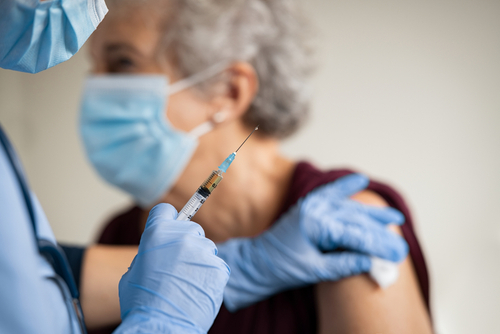Our Open Access Publication of the Month – March 2022
19 April 2022 | Author: Utkarsh Agrawal, Research Fellow in Health Data Science
Association of COVID-19 vaccines ChAdOx1 and BNT162b2 with major venous, arterial, or thrombocytopenic events: A population-based cohort study of 46 million adults in England.

In this month’s review of published papers and pre-prints, the Early Career Committee considered dozens of articles made open access. They were ranked against core pillars of the HDR UK ethos: research quality, team science, scale, open science, patient and public involvement, impact and equality, diversity and inclusion. This month the committee has chosen “Association of COVID-19 vaccines ChAdOx1 and BNT162b2 with major venous, arterial, or thrombocytopenic events: A population-based cohort study of 46 million adults in England”, by Whiteley et. al., as the winning publication.
Cases of venous and arterial thromboses in unusual locations, such as the cerebral veins, and with low platelet levels, have been reported after vaccination COVID-19 vaccine. However, it is challenging to report their frequency at a population level. Whiteley et. al. therefore used electronic health records on 46 million adults, of whom 21 million were vaccinated during the study, and compared the incidence of venous and arterial events before and after the first vaccination with ChAdOx1 (Oxford-AstraZeneca) and BNT162b2 (Pfizer-BioNTech) COVID-19 vaccines. They also estimated the population-level risks of hospitalised thrombocytopenia and major arterial and venous thromboses after COVID-19 vaccination.
They concluded that the rates of ICVT (intracranial venous thrombosis) and thrombocytopenia increased after ChAdOx1 vaccination in adults aged <70 years and it was small in comparison to COVID-19 morbidity and mortality. For people aged ≥70 years, rates of arterial or venous thrombotic events were generally lower after either vaccine (BNT162b2 or ChAdOx1) compared with unvaccinated.
The committee scored the paper high on team science and scale as it brings together several researchers from across the four nations and uses data from almost all the individuals in England. Due to the nature of the research, the score for patient involvement was low, however the ECR committee judged that the paper scored high on impact and diversity due to the importance of insights into events in vaccinated populations, and the potential for this research to inform case management and vaccine policy.
We would also like to highlight the work titled “Population antibody responses following COVID-19 vaccination in 212,102 individuals”, by Ward et al. This study used the data collected as part of the REACT-2 programme and highlights the need of second vaccine doses and the role of individual factors such as age, sex, prior infection, comorbidities and vaccine type in determining antibody response.
Both of these distinct projects represent novel and important work towards understanding the impact of COVID-19 on individuals and health systems. HDR UK’s Early Career Committee would like to congratulate and commend these teams for their contribution to HDR UK’s vision of uniting the UK’s health data to enable discoveries that improve people’s lives.



